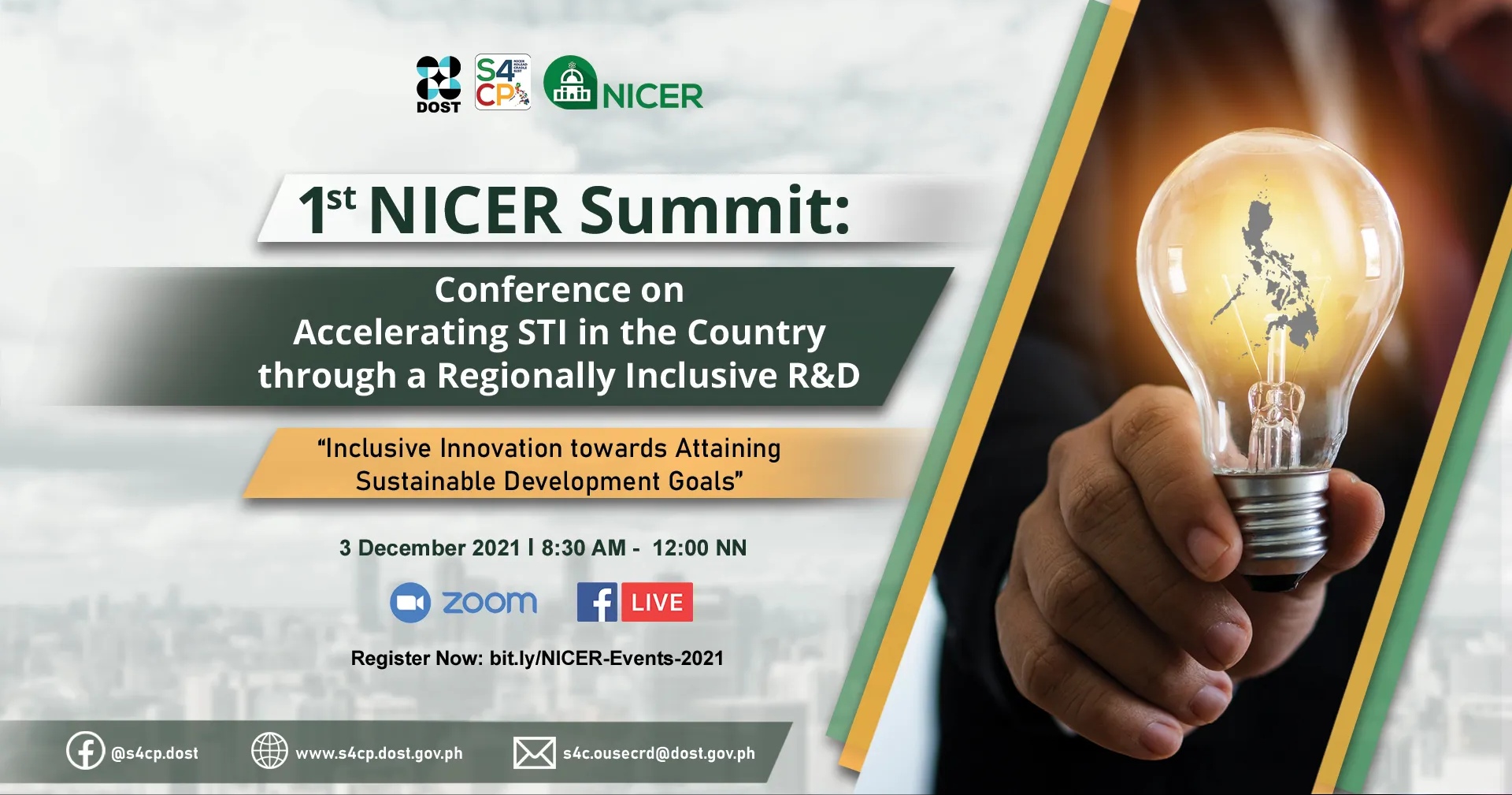FRIDAY, December 3, 2021–The Department of Science and Technology (DOST) – Science for Change (S4C) through its sub-program Niche Centers in the Region for R&D (NICER) today held its first NICER Summit. The online event entitled “Conference on Accelerating STI in the Country through a Regionally Inclusive R&D” showcased 37 innovation hubs spread across 17 regions in the country.
“Our NICER Centers are actively taking on the challenge of elevating the products, commodities, and expertise of the Regions through the development of smart and innovative solutions and strategies,” said DOST Secretary Fortunato T. dela Peña. “Through inclusive innovation where no Region will be left behind and a properly supported R&D network, our country will be able to sustain itself and remain resilient, particularly in difficult times.”
“The NICER Program has catalyzed collaborations among academe, National Government Agencies, Local Government Units, and private industry which in turn, contributed to accelerating the country’s social and economic development,” said DOST Undersecretary for R&D, Dr. Rowena Cristina L. Guevara. “Through the establishment of these NICERs, Filipino researchers were able to advance their role from the status quo of peer-centric R&D towards a society-centric R&D. This advancement ensures that the researchers are focused on achieving socio-economic impact from their research efforts in addition to training young scientists, frequent publications, and technology development. Through society-centric R&D efforts and inclusive innovation, the Sustainable Development Goals will be achieved.”
One of the highlights of the event is the E-Mobility R&D Center led by Cagayan State University and the University of the Philippines-Diliman. The Center will design, develop, fabricate and assemble e-Trike that could be adapted in the region. The focus will be on the reduction of overall weight by improving body shell design and choosing lightweight materials for the E-trike. This innovation center will be redesigning a lightweight chassis; improving mechanical energy transmission systems, and determining optimal electronic/electrical systems with respect to the mechanical design for the tricycle.
In addition, a COVID-19 responsive design will be considered to ensure physical distancing and prevent the spread of viral infections. After assembly and integration of the different parts to create the whole e-Trike, its performance will be tested in actual road conditions. Further, the center will design the electrical and electronic components of an Electric Tricycle and determine the viability of the conversion of conventional tricycle to e-Trike.
The event called for the universities and research institutions in collaboration with the government agencies and the private sector to join the aspiration of pursuing inclusive innovation. The next Call for Proposals is on March 2022.
With all the stakeholders engaged so far in the establishment of the NICERs, it is evident that academe-industry-government collaboration really works and indeed boosts regional development. “We are excited how these collaborations and partnerships will grow, continue to expand, and give birth eventually to new national research, development, and innovation institutions. We need the commitment, support, and assistance of everyone in making it happen in the not-so-distant future,” said DOST Undersecretary for Regional Operations, Engr. Sancho A. Mabborang.
Last September 21, the House of Representatives approved the Science for Change bill, in its 3rd and final reading. It is hoped that the Senate will soon start discussing the S4CP bill. By institutionalizing the S4CP, a massive increase in R&D investments will address issues that hold back the Philippines from fully benefiting from science, technology, and innovation, and achieving the Sustainable Development Goals.




